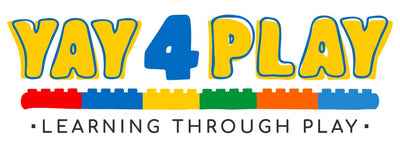There are millions and millions of ways in which you can combine just 6 bricks – the combinations are indeed endless.
Schools and parents use these concrete manipulatives to engage children in playful learning. Before your child even realizes it, they are learning the key skills they need to be successful in their school careers.
All the activities are quick and easy to use and they are designed to motivate children to develop critically important skills. It’s also comforting to know that the six bricks methodology is based on strong and long-standing research into childhood development.
Here’s a long list of skills that children build as they play using the six bricks methodology:
- Sensory skills – they touch the bricks and feel their shape and size.
- Speech and language – they understand instructions and have to interpret how to respond verbally and through placement of the bricks.
- Creativity – children use their imagination to create new worlds where they can express their ideas and thoughts.
- Numeracy – Children learn about colours and shapes, addition and subtraction without even realising that they are building up their foundation for maths in the future.
- Co-operation with others – children work in small groups or pairs and demonstrate that they cooperate with their friends or siblings to achieve an activity outcome.
- Motor skills – fine and gross motor movement is so vital for ongoing development. Children manipulate the bricks and also stand up, run and move around as they use their whole body.
- A sense of self – children also develop a deeper understanding of their own abilities and continue to grow and develop.
- Focus and concentration – Children persist in the face of challenges and enjoy problem-solving.
- Social and emotional skills – SEL is an important part of children’s development and yes, believe it or not, the six bricks also ensure that children have the ability to build resilience and effectively manage their own emotions.
- A love of learning – children develop an ongoing and lifelong love for learning new skills and growing their knowledge. They enjoy initiating activities and are able to tackle tasks with confidence.

And what’s even better – this is a great way for the family to play well together so that everyone participates in the joy of learning through play.
